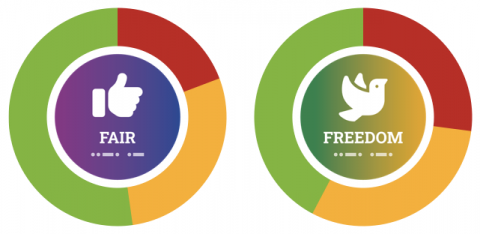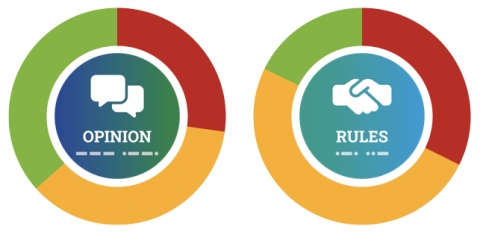Child Rights Panel
Digital life in The Netherlands
Our Digital Children's Rights panel has conducted extensive research into the status of the digital lives of children and young people in the Netherlands. The insights are based on many conversations with children and young people and our panel with the opinions and experiences of more than 900 children and young people. It is very important that we listen better and more structurally to the new generation and actually do more with their experiences, problems, wishes and ideas. Every vote counts!

What is positive and what needs improvement?
Many children and young people in The Netherlands believe that they always have sufficient access to the digital environment. This does not always apply to everyone! It is good to hear that children and young people can usually learn enough and enjoy their digital lives. They also believe that thanks to the digital world they can develop well and have sufficient opportunities. It is therefore important to emphasize that the digital world is good for children and young people, despite the fact that many things need to be improved!

Many children in the Netherlands indicate that they do not feel safe in the digital world and suffer from abuse of their privacy. For example, children and young people receive a lot of incorrect and unsuitable information online and they often feel that they spend too long in front of their screen. Other problems that children and young people often experience online concern sexual abuse or receiving sexual messages and false accusations. It is worrying that, according to many children and young people, digital life is not always good for their (mental) health.

Several children and young people in the Netherlands find that they do not always understand the digital environment easily. They experience that their own interests are not always paramount. Unfortunately, a relatively large group of children and young people also feel that they do not always feel free to think, believe and do everything in the digital world.

Children and young people in the Netherlands have varying experiences online when it comes to (safely) expressing their opinions. On the one hand, they often indicate that they are not being heard and on the other hand, it often happens that they get into trouble due to negative reactions by giving their opinion. Finally, it is striking that children and young people do not know the rules in the digital environment sufficiently and do not always follow the rules. In the digital world they not only have rights, but also obligations.

Have a look at our Child Rights PLAY participation platform.


